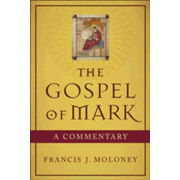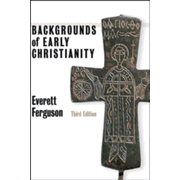THE LESSON we study for the Second
Sunday in Lent is heard from the Gospel According to Saint Mark. Our scheduled reading first reveals our Lord’s conversation with his apostles about his identity, then
turns to the general population to identify followers as participants in his Church and ministry…
And Jesus went on with his disciples, to the
villages of Caesarea Philippi; and on the way he asked his disciples, “Who do
men say that I am?” And they told him, “John the Baptist; and others say,
Elijah; and others one of the prophets.” And he asked them, “But who do you say
that I am?” Peter answered him, “You are the Christ.” And he charged them to
tell no one about him.
And he began to teach them that the Son of man
must suffer many things, and be rejected by the elders and the chief priests
and the scribes, and be killed, and after three days rise again. And he said
this plainly. And Peter took him, and began to rebuke him. But turning and
seeing his disciples, he rebuked Peter, and said, “Get behind me, Satan! For
you are not on the side of God, but of men.”
And he called to him the multitude with his
disciples, and said to them, “If any man would come after me, let him deny
himself and take up his cross and follow me. For whoever would save his life
will lose it; and whoever loses his life for my sake and the gospel’s will save
it.
For what does it profit a man, to gain the whole world
and forfeit his life? For what can a man give in return for his life? For
whoever is ashamed of me and of my words in this adulterous and sinful
generation, of him will the Son of man also be ashamed, when he comes in the
glory of his Father with the holy angels.”
(Mark 8:27-38)
 |
Gospel of Mark, The: A Commentary - eBook By Francis J. Moloney |
From
Few to All…
The query Jesus laid before Peter and the apostles places
our focus upon the Jewish population's responses to his being in their midst. According to
Mark, Peter was the apostolic spokesperson. He told of the various reactions of Jewish
leaders and the general populace. Jesus then narrowed the questioning to just his
disciples. He asked Peter about who they believed him to be.
According to this
earliest witness, Peter rightly identified Jesus for he answered that they believed him to be the Christ. Nonetheless, as likely told to the
early Church by Peter himself, the text does not reveal that any of the
apostles realized the full meaning of that statement. They thought he was to only assume the earthly throne of Israel. The inability of the
apostles to comprehend his true Messianic role becomes thematic for the gospel of Mark, because
the same question is asked three times during the apostolic trek to the cross. Jesus repeatedly
tested their ability to “get it”. The writer of the gospel thus emphasized
their ignorance. Their inability to comprehend that God had a different meaning
for the Messianic role than the Jewish leadership, affected both the followers
and opponents of Jesus’ mission.
Interesting as well, Mark does not use the Hebrew Messianic title to describe Jesus here, but instead used the Greek term of “Christ”… though both were indications that Jesus was the “anointed” or "appointed" one. My claim is that Mark addressed his writing specific to unbelievers in the Jewish diaspora across the Roman Empire… and especially any Greeks among them. Using the term therefore, Mark focused his readers universally by relating that Peter said that Jesus is the “Christ”.
Interesting as well, Mark does not use the Hebrew Messianic title to describe Jesus here, but instead used the Greek term of “Christ”… though both were indications that Jesus was the “anointed” or "appointed" one. My claim is that Mark addressed his writing specific to unbelievers in the Jewish diaspora across the Roman Empire… and especially any Greeks among them. Using the term therefore, Mark focused his readers universally by relating that Peter said that Jesus is the “Christ”.
Jesus was
described by Mark as more than merely a human being sent by God, as historically believed in error by many persons both then and now. Mark argued that Jesus indeed is the Son of Man, and
the Christ of God. For further discussion on this matter, you can delve into a
previous material covered on this same passage as written by the church of Matthew, You can find this
in our study of the gospel for Pentecost 11, Year A in the lectionary cycle.
For our Bible study today, however, I would bring us to
examine the latter verses of this text. At the time, Jesus instructed his disciples not
to reveal his Messianic identity, for they did not yet fully understand the
all-encompassing mission that the title portrayed. His purpose was far greater
than the erroneous perceptions his followers and adversaries held. They thought that
Jesus would challenge local rulers and attempt to overthrow the seat of power in Israel.
 |
Politics for Christians: Statecraft as Soulcraft By Francis J. Beckwith |
Follow Only Me!
In the reading, we find that Mark related that
the audience changed. The scene portrays that Jesus turned... and began to speak to others who had gathered. He thus included the poor, the rich, the Pharisee, Sadducee
and Zealot and others. Here the text becomes very telling.
Mark shifted the scene to universally reveal the message they needed to hear. By doing so Mark taught his own reading audience and thus teaches us today as well. We are taught what following Jesus really means.
Mark shifted the scene to universally reveal the message they needed to hear. By doing so Mark taught his own reading audience and thus teaches us today as well. We are taught what following Jesus really means.
All witnesses are taught that as his
disciples... we are to be in the world, but not of it. Jesus’ original
audience outside of Caesarea Phillippi and those who later came out of the Markan
church witness, received a call to deny themselves.
They were made able to set aside their own agenda and personal ambitions. Those hearing
Jesus and reading this text were asked, even though not completely understanding, to
cast away their finite human control. The question is posed, "Will they or we, do so?" Those hearing were... and still are... asked to follow in
faith.
You see, the disciples were to take up the challenge of moving forward as Christians. They were called... and indeed some followed. In following they would eventually learn of greater things by the power of the Holy Spirit, and give empowered witness while working in a hostile and challenging world.
You see, the disciples were to take up the challenge of moving forward as Christians. They were called... and indeed some followed. In following they would eventually learn of greater things by the power of the Holy Spirit, and give empowered witness while working in a hostile and challenging world.
 |
Persecuted: The Global Assault on Christians By Paul Marshall, Lela Gilbert & Nina Shea |
In answer to
this, we of the modern Church need to particularly note the passage that also
gives us firm guidance. We need take it seriously. We grasp this as a Lenten warning as we move toward the cross of
Easter. We are not called as the Body of Christ in today’s world to
allow ourselves to be ashamed (In Greek - ἐπαισχυνθῇ - hepaischynthe) of
witnessing about Jesus Christ, our Lord. Surely, as
demonstrated by his death and Resurrection, Jesus was and is yet living and holy.
He was thus defined as “set apart” by God. Our Lord was and still is truly human... and as God is also divine.
Jesus thus possessed and still yet displays through the Spirit... a uniqueness that is far removed from
any of the world’s would-be religious usurpers.
We note that many false leaders today merely attempt to
glean the Church and civil populations like demons that tear at the fabric of our Lord’s pure garment.
These assail and mislead the his true Church by prostituting the message of
Jesus Christ. It is these heretical ones who soft-pedal Jesus’ divinity and
slant his unchanging Word in order to endorse their own social or financial agendas. These
apostates fail to reveal him as Lord of lords… the crucified and Risen Son of
God! These are those persons of whom Jesus will be ashamed.
As modern disciples, please remember that you now are blessed
ones who truly read and hear his Word, and together we are called to reveal today that Jesus is the
solely the Son of Man and the Son of God. We rightly claim the Good News that salvation is
accomplished only through him. This was the message of Mark to the early
Church, and should continue even
now in this earthly culture of death. We are called to do this throughout the Lenten season. May this message
spread by the power of the Holy Spirit.





